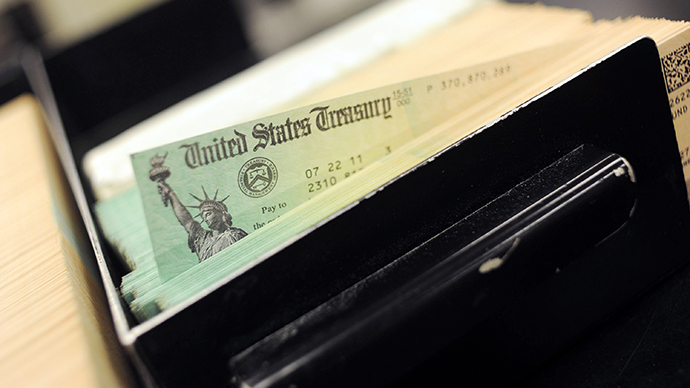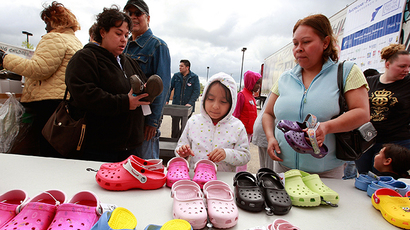900 wealthiest Americans exempted from paying 2014 Social Security past Jan. 2nd

A small, elite group of US citizens has already met their 2014 financial obligation for Social Security two days into the New Year, and will no longer be required to contribute any of their income to the federal program.
Nearly all working Americans will continue to pay the social security tax through the duration of 2014. The 900 wealthiest, however, have fulfilled their responsibility for the whole year on Thursday by earning $117,000 – the maximum total social security is allowed to take from an individual income each year - on the first and second days of the month.
Teresa Ghilarducci, an economics professor at the New School for Social Research, wrote that if everyone eligible paid all year long, “the Social security system would be solvent indefinitely and they still would be the richest and prettiest in all the land.”
Exactly who made enough money to qualify for the end of Social Security payments will be difficult to ascertain until the end of 2014, but by January 2, 2012, 894 individuals across the nation had already fulfilled their commitment. The Los Angeles Times noted that this exclusive club was made up of mostly corporate CEOs who were not in the 1 percent or .01 percent, but rather the .0001 percent of high income earners. Executives at NewsCorp, Philip Morris, Pfizer, ComCast, and Starbucks all made up 70 of the 894 that year.
The income-cap on Social Security taxes has quietly become one of the most contentious issues among activists throughout the country, if not among lawmakers in Washington. A number of politicians have proposed drastically raising the cap or eliminating it altogether, only to see the issue quickly voted down. These activists argue that the very top of the income earners in the US are thus the most capable of contributing to the federal program, and should not be exempted.
According to the Department of Commerce, Social Security kept 15.3 million people out of poverty in 2011, by far the most of any federal benefit. Unemployment insurance, for example, kept 1.7 million people out of poverty that same year.
The Center for Economic Policy Research issued a report in 2012 finding that less than 6 percent of workers would notice a change on their paycheck if the cap was eliminated, and 1.4 percent would have been affected by a proposal which would have raised it to $250,000 had the bill passed through Congress.
Democrats successfully raised the cap from $106,800 to its current level in 2009. Unfortunately, for the millions of Americans who rely on the program much of the political discussion in recent years has focused on slashing benefits.
President Obama – who along with the Democratic Party has positioned himself as a protector of the elderly and disabled – recently proposed a change to how Social Security benefits are calculated.
The new measure, known as Chained CPI, would cut $230 billion in benefits over ten years by gradually shaving dollars off a retiree's income as they grow older. Someone who started receiving benefits at age 62, for instance, would lose roughly one month's income by the time they turn 92, when that money would certainly be much more valuable.














